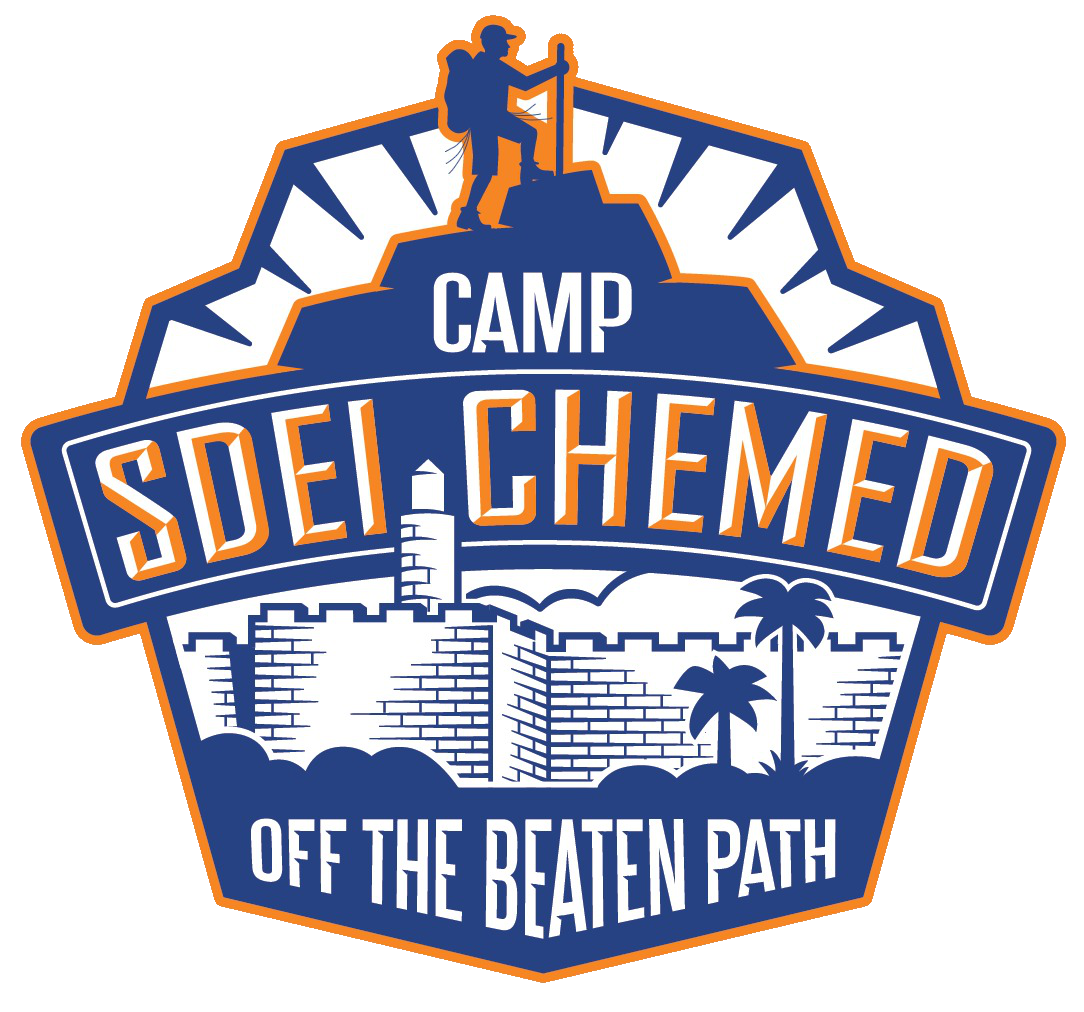Recap of Summer 2024
Since my father, Rabbi Eli Teitelbaum Z”L, started Camp Sdei Chemed in 1969, there have been very few instances in which we had to cancel camp. My father would say that if he had a minyan of boys who wanted to join and parents who were willing to send them, he would bring them to Israel. This past summer, despite a year filled with uncertainties, we took a bus full of boys. A huge thanks to our parent body, who were encouraging, patient, and trusted us to make our decision to go to Eretz Yisroel. It was through our constant contact, both before and during the summer, that we were able to safely navigate our tour and make sure parents were comfortable with our decisions. I hope this recap will inspire others to visit as well.
No doubt this summer will go down in Sdei Chemed history as very special and unique. When I tell people that we toured most of the country for two months and didn’t hear a single siren, they seem surprised. If you have been in Israel during a war or conflict you know that what’s reported in the news and what it actually feels like on the ground are often very different. Despite the ongoing war, we managed to put together an incredible itinerary and, as is typical Sdei Chemed style, there was no downtime, with many of our returning campers saying that it felt like we did even more than in previous summers.
We toured from Eilat in the south to Tzfat in the north and wherever we went, we were welcomed with tremendous warmth. People with tears in their eyes thanked our boys for coming. I think it’s important to mention this because even if we had only visited the holy places, swam in the beautiful Mediterranean beaches, and hiked the wonderful trails, it would have been worth it. Yet this summer we came not only to gain for ourselves, but to make a difference, and part of that meant connecting and sharing in the difficult times Israel is facing. A number of trips this summer focused on this theme.
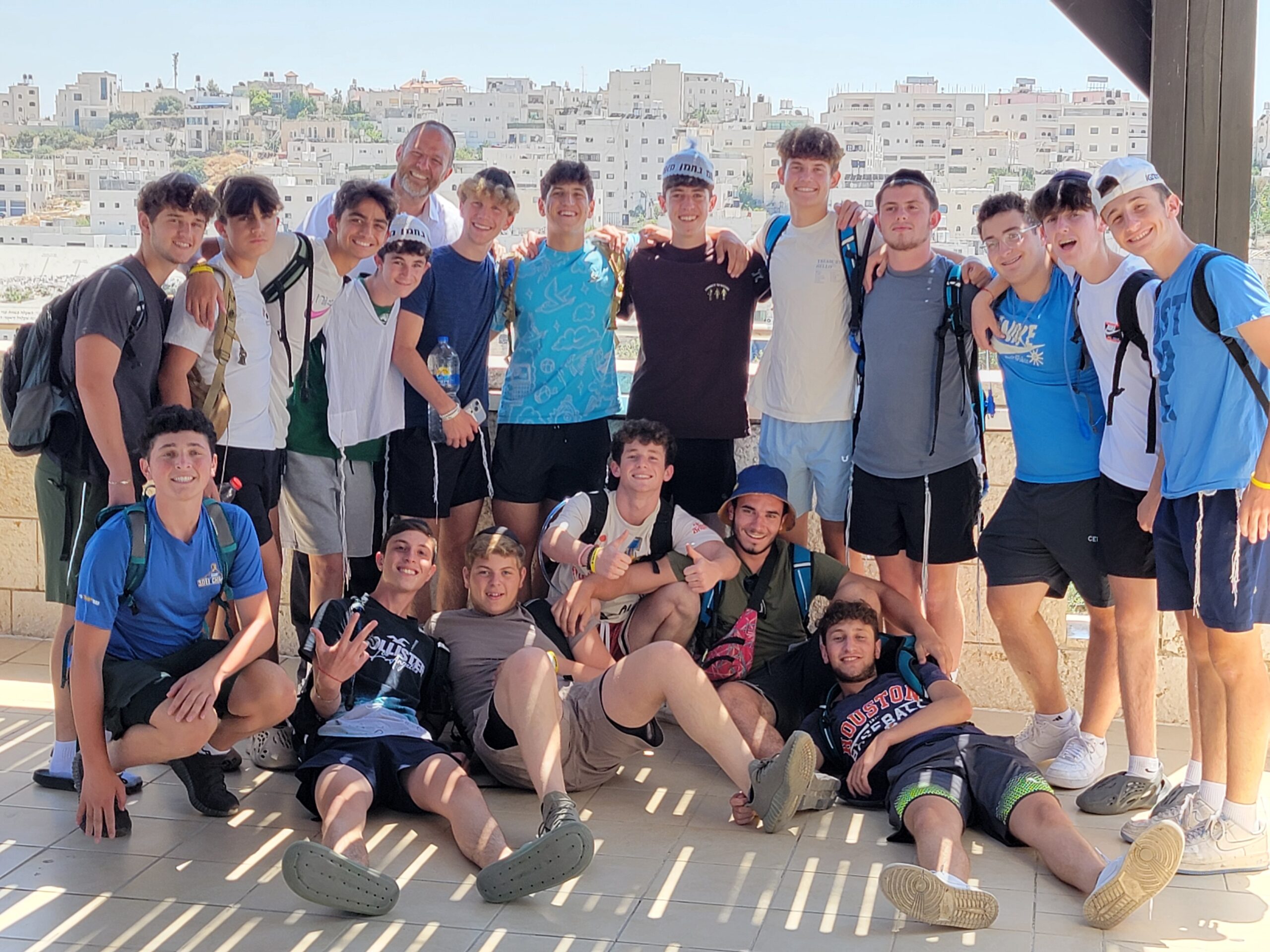
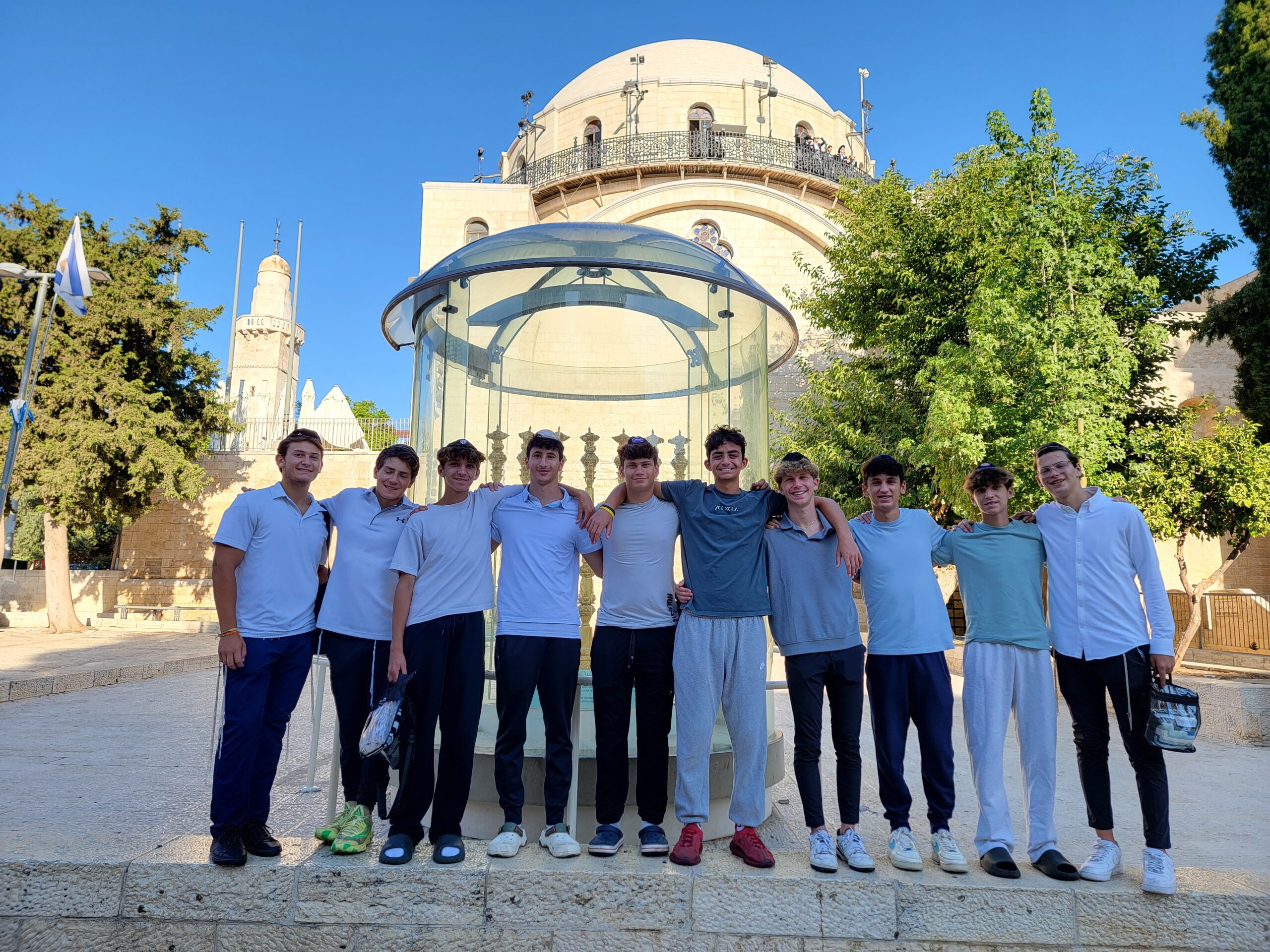
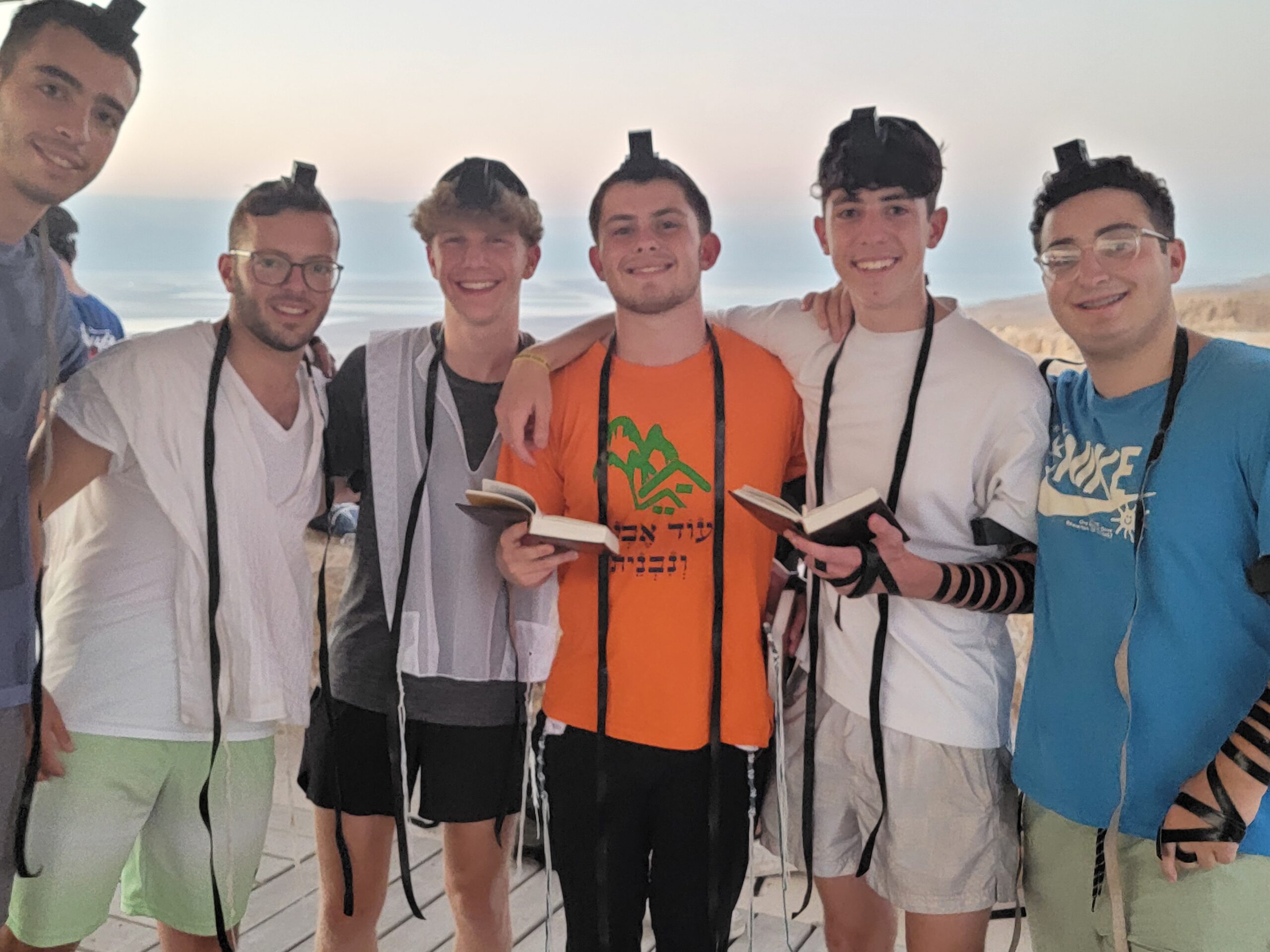
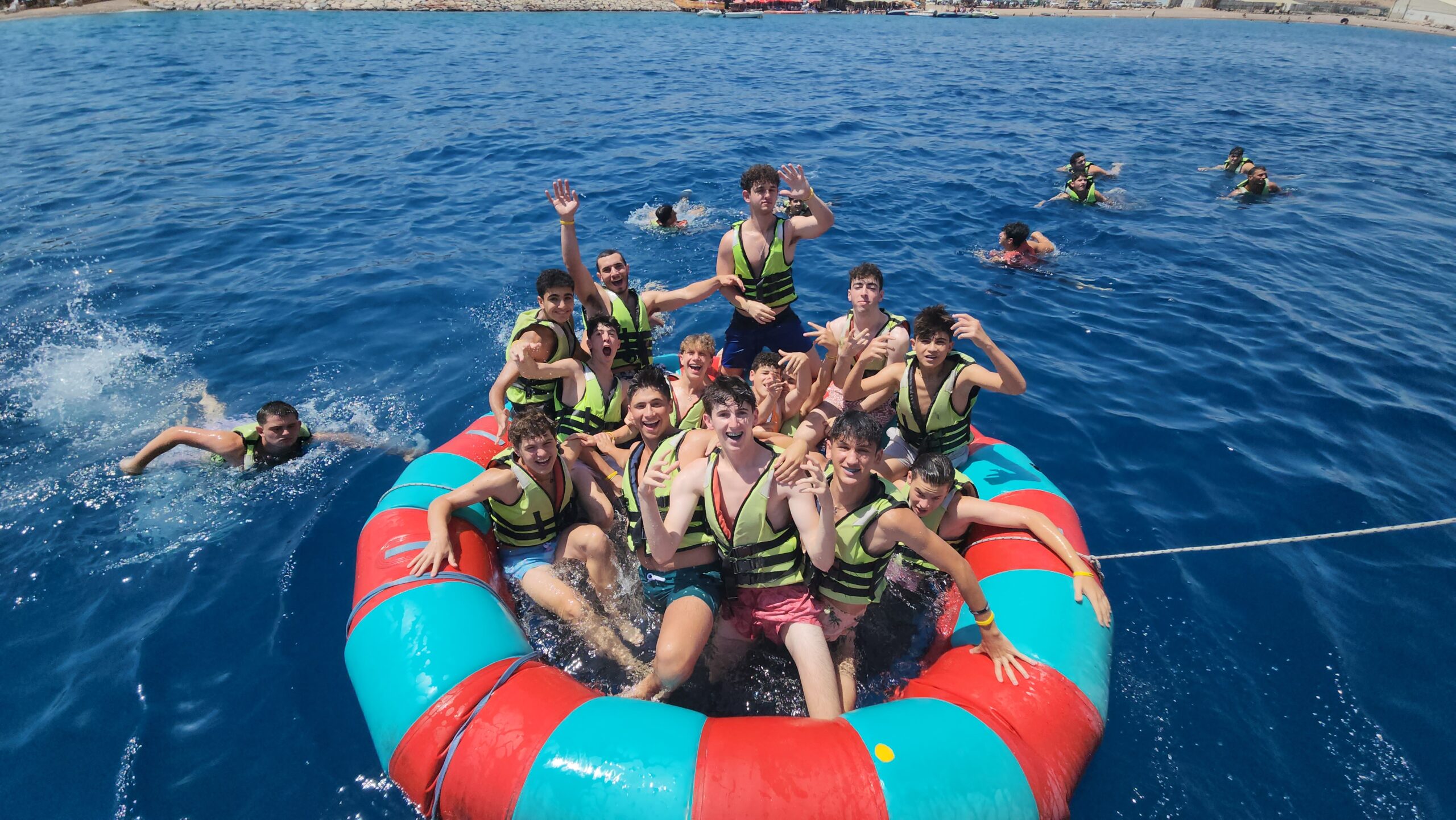
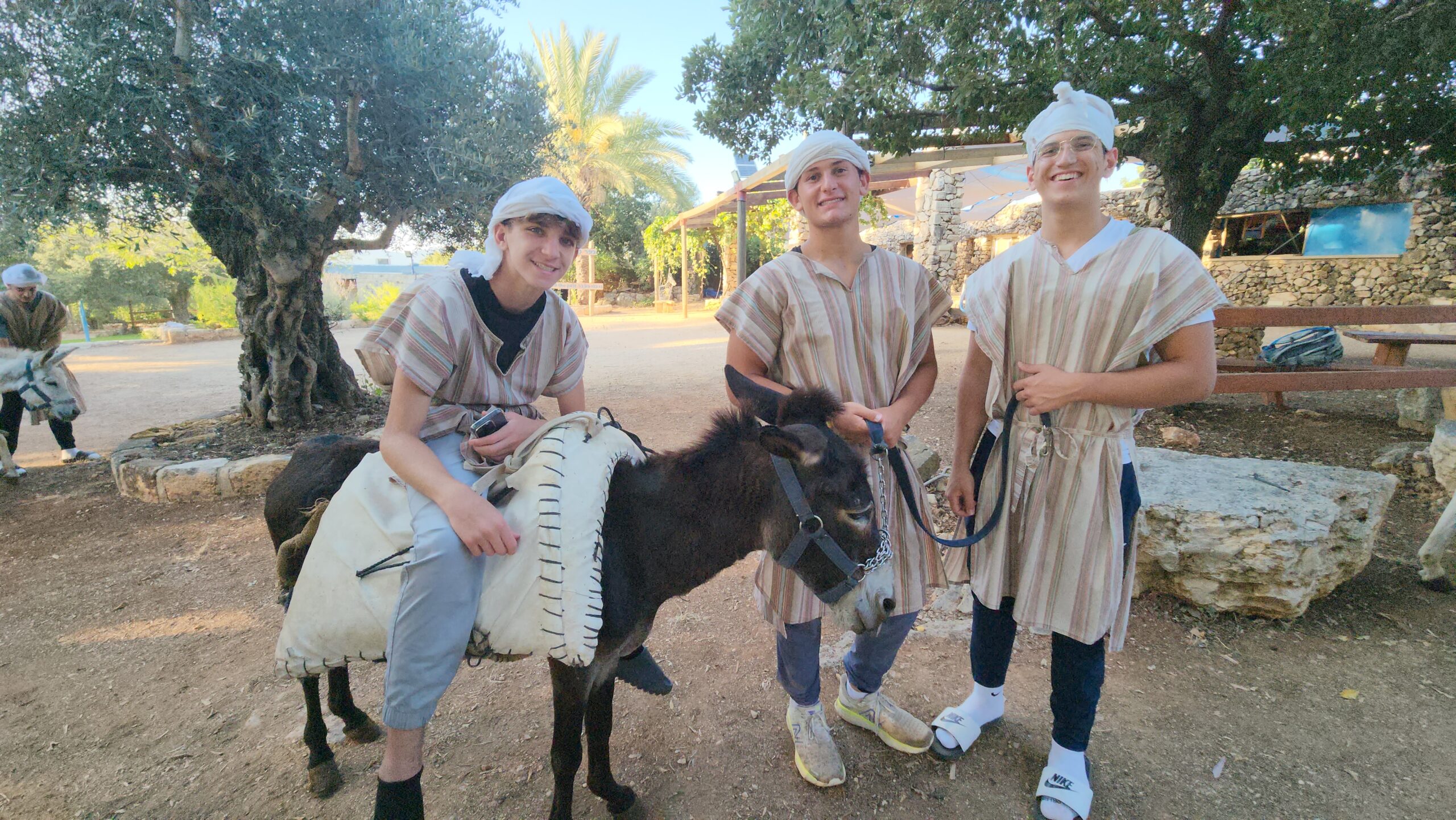
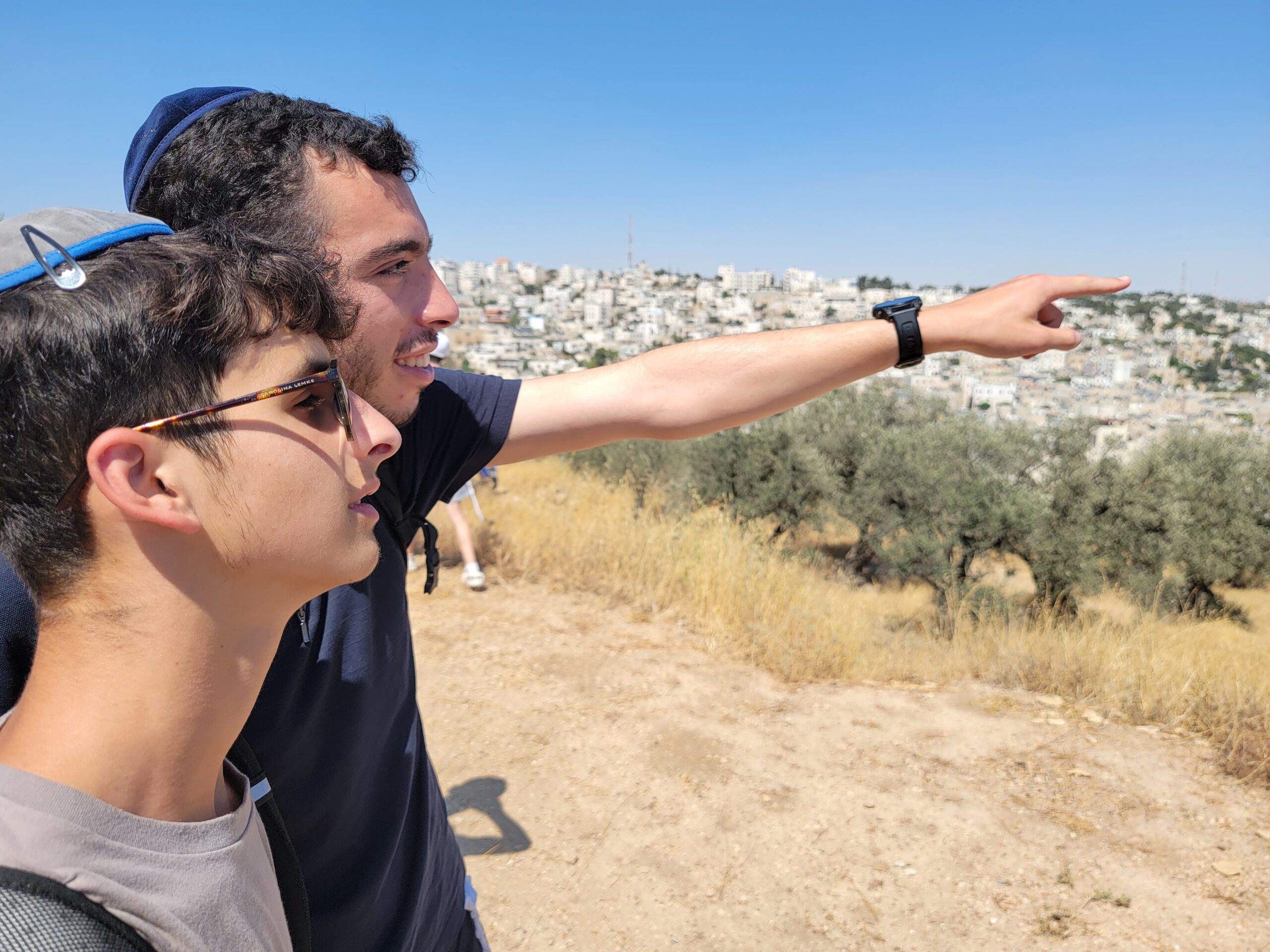
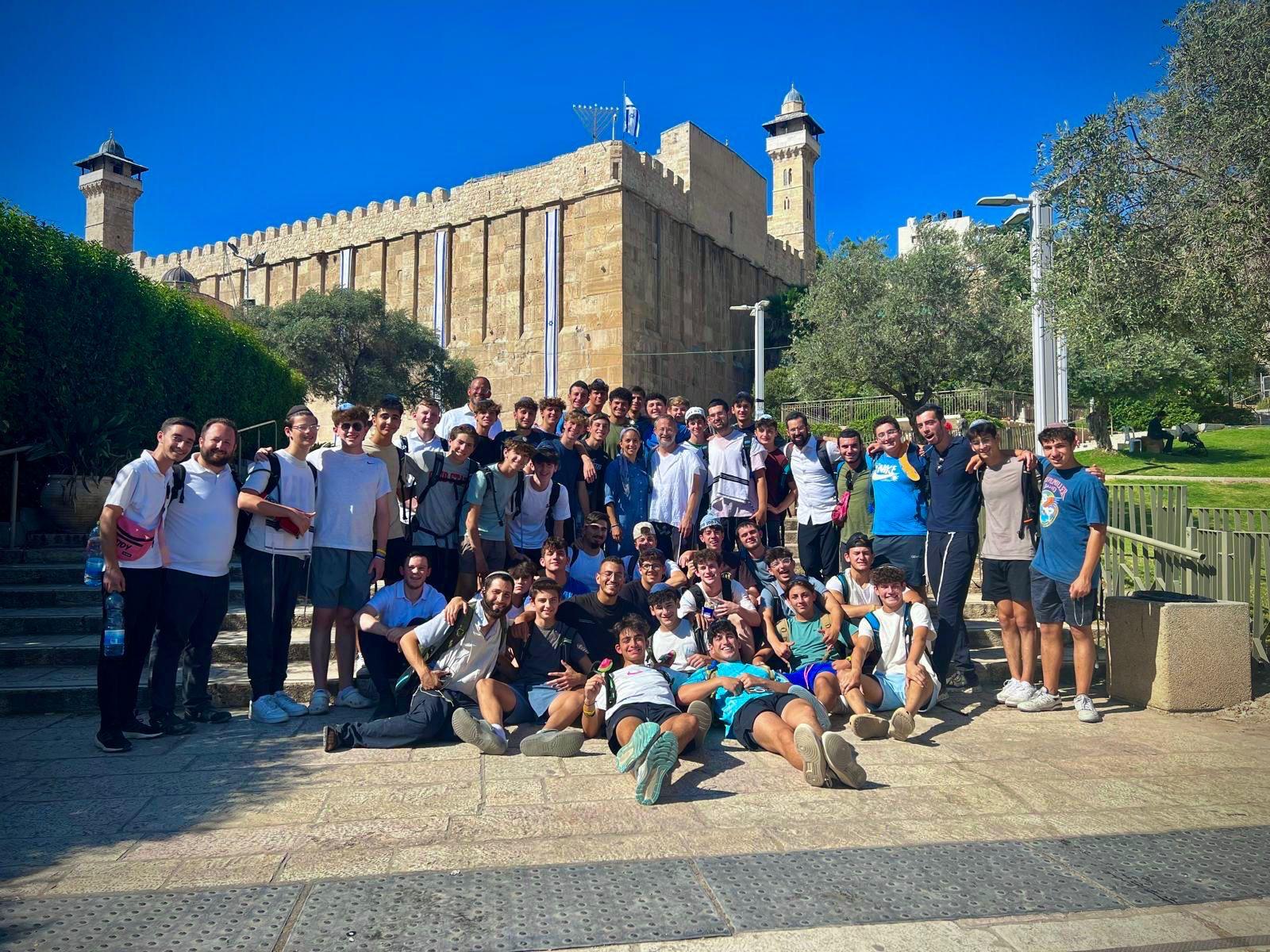
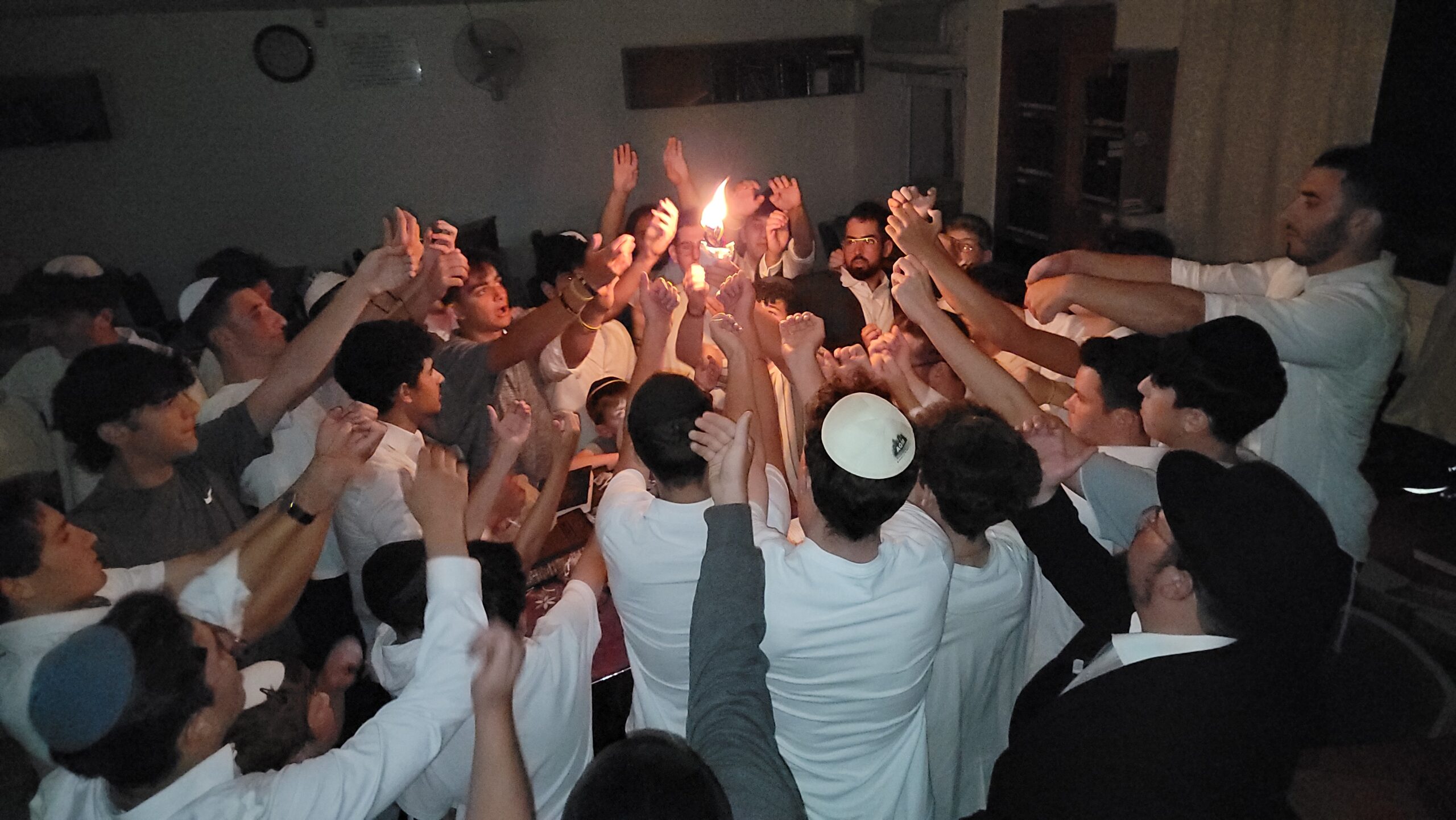
One example was our visit to Hostage Square. In Tel Aviv, next to the art museum, there’s a large area dedicated to reminding people of the hostages still held in Gaza. Pictures and memorabilia are displayed all around and gatherings and protests frequently take place . You can visit to learn more about the hostages, sometimes from their close family and friends. There’s a VR experience that aims to depict the horrifying experiences that the hostages are going through. But honestly, you could and should visit just to show that you care. We found a beautiful spot for a kumzitz where we could talk and listen to those who frequent the space. This was our first October 7th related stop of the summer and our guys came out impacted in an important way.
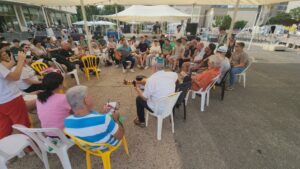
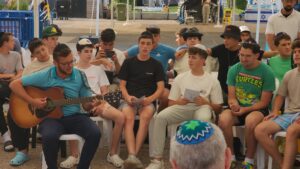
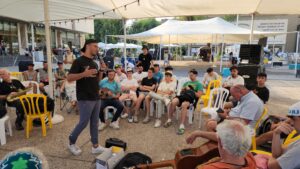
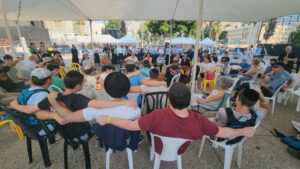
Two of our most meaningful Shabbos experiences each summer are in the Old City of Yerushalayim, where we daven at the Kotel, and in Tzfat. Many campers actually rank the Shabbos in Tzfat as their favorite. Tzfat is one of the four holy cities, but it’s more than that—it’s an experience that transforms our campers. That’s why it was such a difficult decision whether or not to visit this summer. Many groups stayed away, but after much deliberation and authorization from Israeli security, we decided to go. The question for all of us who visited Tzfat in the past was, would our campers be able to connect there as they did in the past? The artist colony would be closed, and the usually bustling shuls would have fewer visitors. How would that affect the experience?
We decided to publicize our visit to the Tzfat community and let them know that if anyone wanted to open their shops for us, we would be happy to visit. The old city is supported by tourism and had been yearning for visitors for nearly a year. They accepted our offer and word spread quickly. Campers had the opportunity and were indeed encouraged by many parents to buy gifts at the artist colony. We were flooded with immense gratitude from the community. People were excited to see us and we felt it.
A local yeshiva heard that we were coming and invited us to fabreng with them. They served us snacks, drinks, and the best cholent Tzfat has to offer. Special thanks to Reb Eliyahu Pereira for the invite and for sharing some chasidic Torah with the boys. Later that night, we were led in a Breslov meditation session overlooking the beautiful mountains. Thus began the most meaningful tour of the local kivrei tzadikim. Visiting the beis hakvoros during the day, when it’s extremely hot during the summer can sometimes be difficult, but late at night with a cool Tzfat breeze, it is a whole different experience. Our new friends from the yeshiva accompanied us with stories and guitars that followed us around like an interactive Carlebach experience. That night, a camper came over to me and wanted to let me know that he was so happy we came to Tzfat and that this was his best day from the entire summer. Mind you, we had already visited Eilat, Tel Aviv, and other adrenaline packed locales. Another camper told me how he’s been to Tzfat many times but this felt much more authentic. It was quite different walking around that Shabbos. There were no groups, but we did get to schmooze with the people that live there much more than usual. They truly were ecstatic that we came and spent time with them.
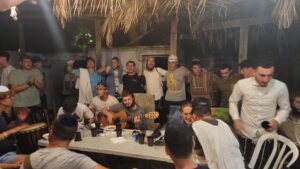
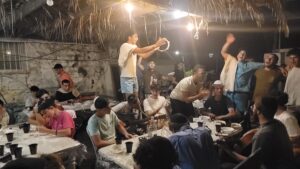
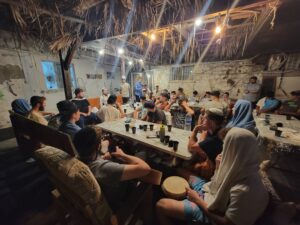
During the nine days, we set aside a day dedicated to October 7th. At the site of the Nova festival massacre at Karnei Reim, there is a memorial. It’s a wide-open field now decorated with memories of the 364 souls who were killed, and the more than 40 hostages who were taken from there. We arrived early, and when we got off the bus, it was perfectly quiet. It felt like someone had pulled the plug and everything went still. Our campers reacted immediately and walked up and down the rows of memorials in shocked silence. We also visited the pile of burnt cars near Netivot. It’s both shocking and disturbing. It was powerful to see how each and every boy processed the Oct 7th tragedy differently and how they discussed and shared thoughts on this experience amongst peers and staff. We had a heartfelt kumzitz. We sang. We spoke. We listened. We cried. We heard stories—stories of “ordinary” Israeli citizens battling Hamas terrorists, stories of loss and pain, stories of Ahavas Yisroel that we also witnessed firsthand.
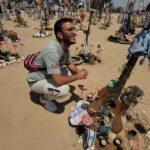
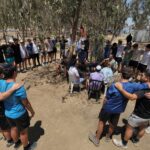
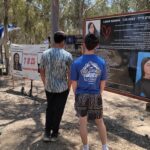
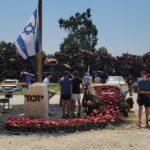
We knew it was important to dedicate time this summer to express our gratitude to the IDF soldiers who are risking their lives so we can tour Israel safely. Many groups hold a BBQ, but our campers wanted to do even more. That’s when we were introduced to Shuva Achim.Two brothers, Dror and Kobi Trabelsi created a rest stop right outside Moshav Shuva for soldiers fighting in Gaza, where they can relax and be spoiled for a few minutes between missions. The Moshav is located near the border and soldiers come in and out of the rest stop 24 hours a day. Together with our Sdei Chemed alumni, we raised over $5,000 which was not only used to provide a five-star BBQ for the soldiers but also purchased materials to build a swing and some benches for the growing outpost. Our campers went to work—building, cooking, singing, dancing, and interacting with the soldiers. To top it all off, since it was the Nine Days, one of our second year campers, Hudi Hartstein, made a beautiful siyum to start the BBQ. We interacted with the soldiers as well as the many volunteers from all over the world who, just like us, came to help and show appreciation. Shuva was just a short drive from Netivot, so I made it a point to stop at the kever of the Baba Sali for mincha. We don’t often visit this part of Israel, so we wanted to make the most of it.
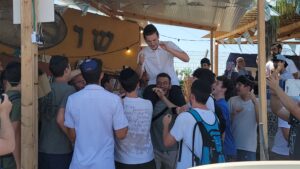
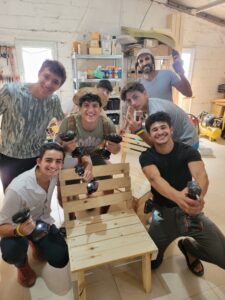
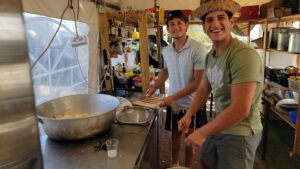
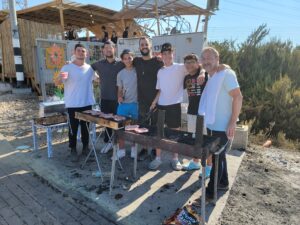
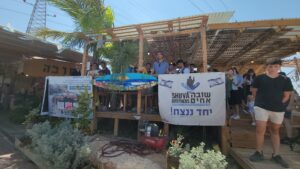
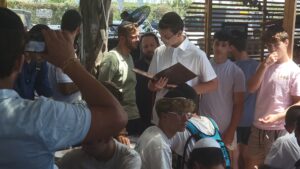
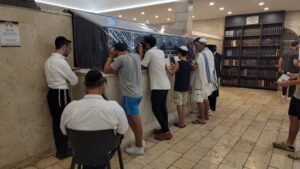
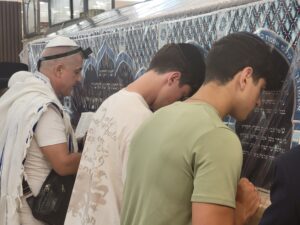
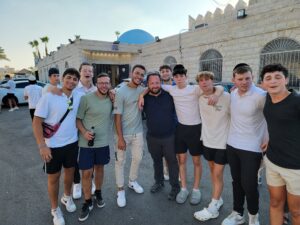
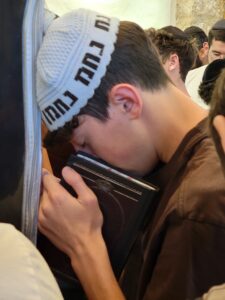
On Erev Tisha B’Av, we had the privilege of hearing from Jennifer Airley, who lost her son Binyamin while he was fighting as a hero in Gaza. Binyamin’s story was one that our boys could relate to and the way Jennifer has processed and channeled her grief—building a retreat center in Tzfat in her son’s spirit and honor—has been an inspiration to all of Am Yisrael. She spoke openly from the heart, with extraordinary strength and faith. After she spoke, we went to “Tachlit” to help pack packages for families in need. I also took a group of boys to Tel Hashomer Rehabilitation Center in Tel Aviv to visit injured IDF soldiers. Our mission was simple: to visit the sick, to let them know we care, and to remind them that the sacrifices they made had a purpose—that we are able to be in Israel because of them. Each one of the soldiers had a fascinating story and each one survived through miracles.I felt ready for Tisha B’Av.
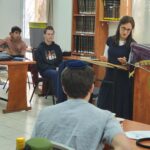
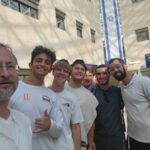
Each summer, we choose a different Israeli community to visit for Shabbos. Two summers back, we had a beautiful time at Moshav Matisyahu, and this past summer, we had an incredible Shabbos in Kfar Etzion. The idea is for camp to visit a community that is not on the typical tourist shabbos list. We stayed in these igloo-type yurts that some refer to as “Smurf houses.” They were quite lovely inside, more like a glamping experience. The views of the Judaean Mountains were just incredible, and the boys received a short history of the Gush next to the famous lonely tree. The Gush is the Heartland of Eretz Yisroel, and to spend Shabbos there is a real privilege. It’s also important to counter the narrative that people living there are extremists. Nothing could be further from the truth. These are some of the most down-to-earth, happy families—accepting of everyone—and they simply want to live in peace in our ancient homeland. The best word I can use to describe life there is “idyllic,” and our campers picked up on that as well. The boys were captivated by their strong love of every Jew and their determination to continue living in Israel no matter the cost. On Shabbos afternoon, we walked to Alon Shvut, davened mincha at Yeshivat Har Etzion, and heard some inspirational words from Rabbi Moshe Taragin. Shabbos in the Gush will go down as one of my own personal favorite Shabbosim of all time.
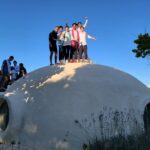
Not only did we keep to our incredible jam-packed itinerary, but we added many new things as well. There is a new, incredible water park called Waterland Eilat which we rented out just for ourselves.. This was added to the usual jammed packed 3 day Eilat trip which includes banana boating, tubing, scuba diving, snorkeling, the ropes course, bungee jumping at Top 94, Captain Philip’s party boat ride, fish spa, parasailing, and ice skating. Eilat has always been a Sdei Chemed favorite, but this summer, the boys said it was on a whole other level. I agree.
Some other highlights this summer were, repelling down the Jilabon, Flybox (indoor skydiving), late-night go-karting, and I can go on. Hikes like Nachal Prat, Nachel Elal, and Har Sedom are truly “off the beaten path.” Add all this to our robust daily learning program and innovative night activities, and you now understand why there is never a second of boredom in Sdei Chemed. This past summer was a once-in-a-lifetime opportunity, and I believe we made the most of it.
It’s hard not to have an amazing summer in Israel, and our campers always come out feeling inspired. But like our very own Rabbi Weberman often asks our boys: “When you feel inspired- inspired for what? Inspired to do what?”
The answers were made clear on the final night of camp. After the final Maariv at the Kotel, sitting in a circle in the old Jewish quarter, our boys had the opportunity to get up and speak, as they often do throughout the summer. It was here that one boy after another shared what inspired them most. Many boys spoke about the friends they made and what they wished to emulate from one another. Conversations with staff members were rare times they felt truly heard and understood. Other boys spoke about the difficulties of being a teenager and how concerns about perception and reputation get in the way of being real. It is not common for a group of teenage boys to be so emotionally vulnerable and speak in such growth -oriented terms but every year I’m reminded that this is what S’dei Chemed is really all about. This is the night I learn the most about my campers.This is when I know camp was a true success. This also inspires me to continue bringing more and more boys to Eretz Yisroel.
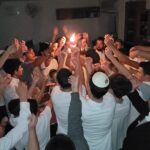
When people ask if we are a touring program, I explain that while we do indeed have the most amazing trips, we are much, much more than just a touring program. It’s hard not to notice when Sdei Chemed arrives on the scene. The energy is palpable. Random strangers join in our ruach. Our shtick often goes viral. Through the summer, guides would comment on how enjoyable the boys were. Our campers brought simcha and life wherever we went. Every summer in camp we give an award to those who exemplify good middos in camp and this summer it really was very hard not to give an award to everyone.
I will leave off with two beautiful letters I received from strangers when we visited Shuva:
“I was volunteering when your group was at Shuva. I got to witness the amazing work they do and your campers made it even more so. So glad you gave them this opportunity. Every trip to Israel is amazing, but this summer is downright historical, and I know it will impact the kids forever. And I got so much comfort from watching them. Thank you.
-B Brecher
“Every parent of these beautiful boys should be so proud! They were kind, menschlich, giving, and inspiring. You and your boys were so helpful in spreading light and kindness to the chayalim and to us during this most difficult period. To top it off, those benches blew me away! שבת שלום!
-R Hartman
L’shana Haba’ah B’Yerushalayim—next year in Jerusalem.
Dovid Teitelbaum
Executive Director, Camp Sdei Chemed
